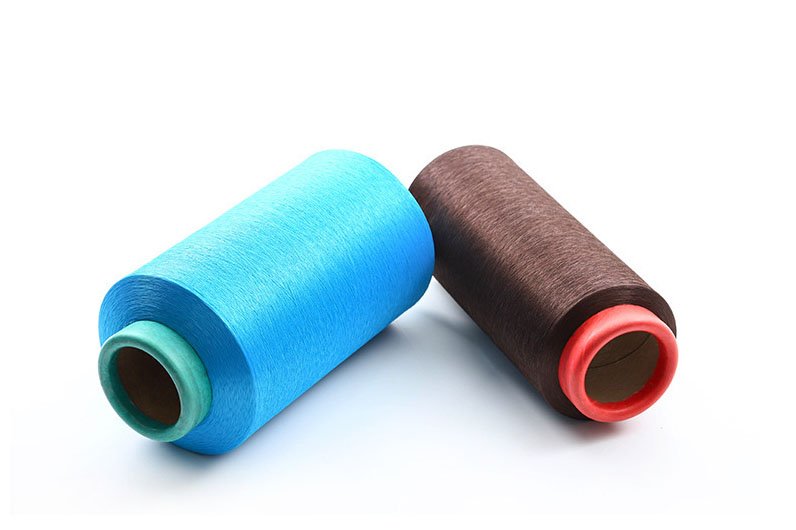Have you ever been shopping for clothes or fabrics and come across the term “denier”? Maybe you’ve seen something like “30D” on a label and wondered what it meant. Let’s take a closer look to know how it can influence your choices when it comes to clothing and fabric selection.
The Definition of Denier
Denier, abbreviated as “D”, is a unit used to indicate the fineness of fibers. Scientifically speaking, it refers to the weight in grams of a 9,000-meter-long fiber under the standard moisture regain. For example, if a 9,000-meter-long fiber weighs 50 grams under the standard moisture regain, then the fineness of this fiber is 50 denier, usually written as 50D. Just as we use “meter” to measure length and “kilogram” to measure weight, denier is the unique “ruler” for measuring the fineness of fibers in the textile industry.



The Historical Origins of Denier
Tracing back the history of denier, its origin is closely intertwined with the development of the textile industry. In the early days of textile production, people were already aware that the fineness of fibers had a significant impact on the quality and performance of textiles. As textile technology continued to advance, in order to describe and control the fineness of fibers more accurately, the unit of denier was gradually established and widely adopted. Its emergence enabled textile practitioners to select and use fiber materials more precisely, laying the foundation for the production of high-quality textiles.
The Application of Denier in the Textile Industry
Denier plays an essential role in every aspect of the textile industry. In the fiber production stage, denier is a crucial indicator for measuring the quality and specifications of fibers. Manufacturers produce fibers of different deniers according to various requirements to meet the needs of subsequent textile processing. For instance, superfine fibers used for making high-end clothing may have a denier as low as a few deniers or even a fraction of a denier. These extremely fine fibers can endow the fabric with a soft, smooth touch and excellent drape. On the other hand, fibers used for making industrial canvas, ropes, etc., may have a denier as high as several hundred deniers to ensure that the products have sufficient strength and abrasion resistance.
In the weaving process, yarns of different deniers are interwoven to create a rich variety of fabric textures and styles. Designers can select appropriate denier yarns for matching according to the design requirements of the product to achieve unique visual effects and handfeel. For example, interweaving low-denier yarns with high-denier yarns can produce a fabric that has both a delicate texture and a certain degree of support.
In the dyeing and printing process, denier also affects the adsorption of dyes and the dyeing effect. Generally, finer fibers (low denier) have a larger specific surface area, stronger dye adsorption capacity, and can achieve a more vivid and uniform color after dyeing. Coarser fibers (high denier), however, are relatively more difficult to dye thoroughly and may require special dyeing processes and dye formulations.
The Impact of Denier on the Performance of Textiles
The denier value directly determines several properties of textiles. In terms of handfeel, textiles made from low-denier fibers feel soft and delicate, as smooth as silk, making them suitable for manufacturing close-fitting clothing and high-end home textile products. In contrast, products made from high-denier fibers feel relatively rough and stiff and are often used for making outdoor clothing, work clothes, and other items that require strong abrasion resistance and support.
Regarding strength and abrasion resistance, high-denier fibers are thicker, and the intermolecular binding force is stronger, so they have higher strength and abrasion resistance. For example, denim made from high-denier fibers can withstand the test of daily wear and washing and is not easy to break. In contrast, fabrics made from low-denier fibers are relatively more fragile and require more careful care.
Breathability and moisture absorption are also important properties affected by denier. Generally, the gaps between low-denier fibers are smaller, so the fabric made from them has relatively poor breathability but may have better moisture absorption. It can quickly absorb the sweat on the skin surface and dissipate it, keeping the skin dry. Fabrics made from high-denier fibers, on the other hand, have better breathability but relatively weaker moisture absorption.
Choosing the Right Denier
For consumers, although it is difficult to directly observe the denier number of fibers when purchasing textiles, some simple methods can be used to make a rough judgment. Firstly, the handfeel can provide a preliminary indication. If the fabric feels soft and smooth, it is likely made from low-denier fibers. Conversely, a rough and stiff fabric may be made from high-denier fibers. Secondly, observe the appearance of the fabric. Lightweight and transparent fabrics usually use low-denier fibers, while thick and opaque fabrics may be made from high-denier fibers.
When choosing textiles, one should select products of appropriate deniers according to actual needs. For example, when buying close-fitting clothing such as underwear and pajamas, it is recommended to choose fabrics with low deniers to ensure wearing comfort. For outdoor sportswear or industrial fabrics that require high strength and abrasion resistance, products with high deniers should be selected.
As an important concept in the textile industry, denier permeates every link from fiber production, weaving, to dyeing and printing, profoundly influencing the performance and quality of textiles. Understanding the knowledge of denier not only helps us better understand the mysteries of the textile industry but also enables us to make more informed choices when purchasing textiles. This allows us to enjoy the comfort and beauty brought by textiles while also experiencing the perfect integration of technology and craftsmanship.
